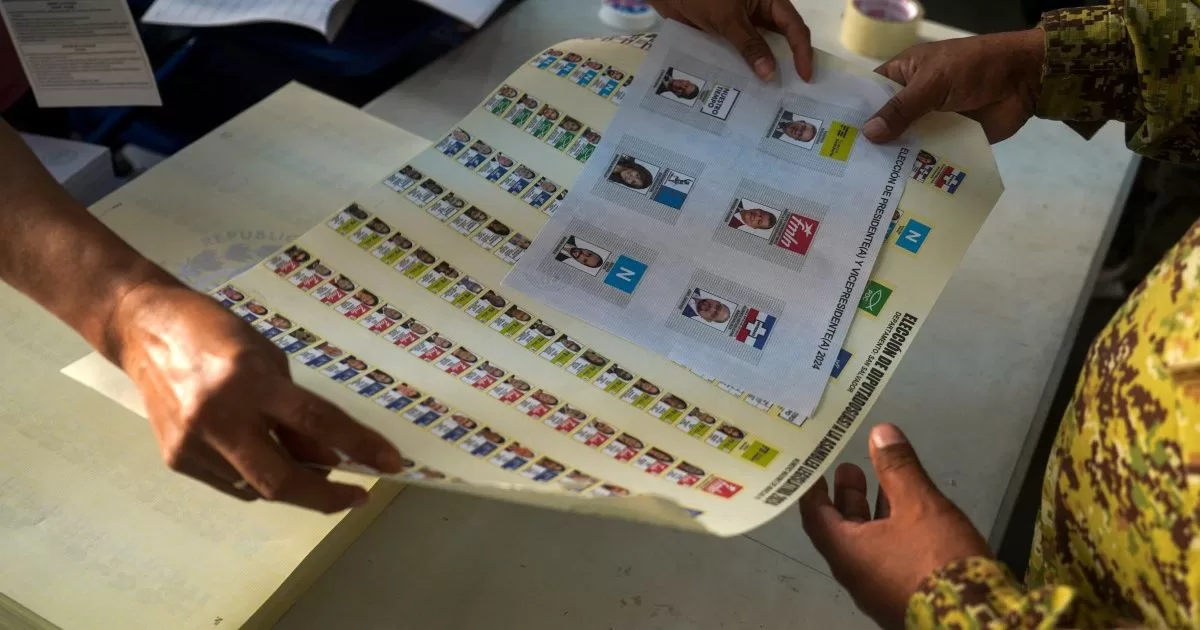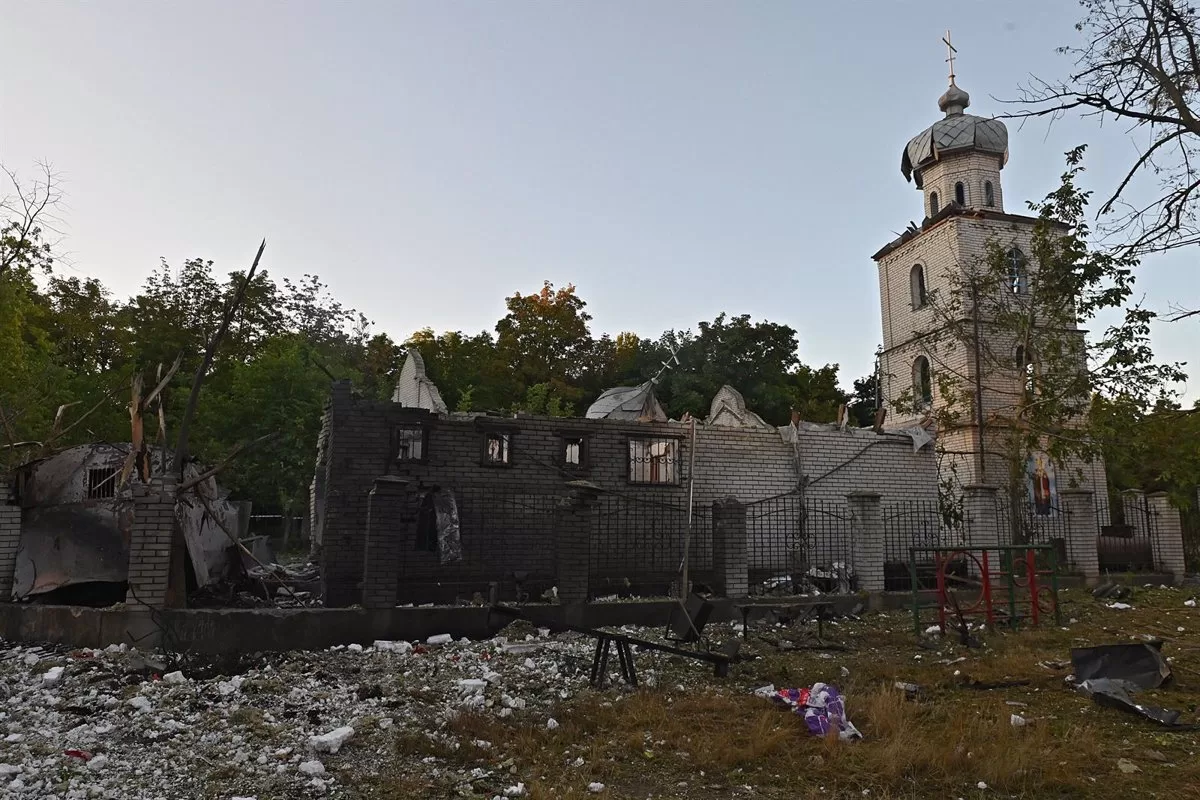Long before voting centers opened at 7:00 local timeAs planned, Salvadorans lined up to participate in these “historic” elections in which peace and tranquility reigns in the streetsafter years of terror and anxiety sown by gang groups.
For this electoral process, the first under a state of exception since the civil war ended in 1992 with the Chapultepec Peace Accords, you are called to participate. 6.2 million saviorsamong them 740,000 abroad, in a process that will extend until 5:00 p.m. local time.
“Institutionally we are ready inside and outside the countrywith all the necessary conditions to receive the electorate in the voting centers, in the Vote Receiving Boards so that they can vote freely,” said the president of the Supreme Electoral Tribunal (TSJ), Dora de Barahona.
1,595 voting centers in El Salvador and 81 abroad for traditional and electronic voting were enabled this Sunday for an electoral process in which the Legislature reduced to 60 deputies will also be renewed.
How to vote in the US?
With cases 2.9 million Salvadorans living in the United StatesAccording to a report from the Migration Policy Institute (MPI), to which the Voice of America had access, the vote in the country is one of the most important.
There are 740,000 Salvadorans abroad who are called for this electoral process. As long as you have a Unique Identity Document (DUI), with a postal address in the United States territory, You will be able to exercise your right to vote electronically through the portal enabled from January 5 until 5:00 p.m. local time on February 4.
Citizens who wish to exercise electronic voting must enter the DUI and folio number, located on one of the sides of the card. Subsequently, the voter’s identity will have to be validated through biometric tests, which involve taking a photo to compare it with the one that appears on the Salvadoran identity document.
Once this process is completed, the voter will be enabled to exercise their right to universal suffrage electronically, selecting the candidates for president, vice president and deputies.
Once selected, the box will appear “CAST YOUR VOTE”which allows electronic voting to be formalized from abroad.
In-person voting in the US
Those who prefer to participate in the voting process in person will have to go to one of the centers enabled by the Embassy of El Salvador in the country. In Florida, Salvadorans will be able to exercise their right to vote at a point provided in Doral.
The other states that will have electoral centers are:
- Arkansas: Springdale
- Colorado: Aurora
- California: Los Angeles, San Francisco, Fresno, San Bernardino
- North Carolina: Charlotte
- Illinois: Chicago
- Georgia: Duluth
- Maryland: Silver Spring
- Minnesota: Saint Paul
- Massachusetts: Boston
- Nevada: Las Vegas
- New Jersey: Elizabeth
- New York: Long Island
- Texas: Dallas, Houston, Laredo, San Antonio, El Paso, McAllen
- Virginia: Woodbridge
- District of Columbia: Washington DC
- Washington: Seattle
- Nebraska: Omaha
- Tennessee: Nashville
- Utah: Salt Lake City
- Arizona: Tucson
Nayib Bukele, a guaranteed victory
Nothing and no one questions the second presidential term of Nayib Bukele, a 42-year-old former publicist who enjoys a voting intention of 81.9%according to the latest survey carried out by the Central American University (UCA).
Today you face a “worn opposition”whose candidates barely appear in opinion polls, without even reaching 10% popular support, making the campaign was practically a single candidate: Bukele.
“Today, the president’s main adversary may be himself. He is competing against his own first governmentwith its own precedent, and that is what will mark the nature of this election,” he said in an interview with DIARIO LAS AMERICAS the journalist and specialist in Strategic Communication, Gabriel Trillos.
The presidential candidates who are “closest” to the president are the former deputy Manuel Flores, for the Farabundo Martí National Liberation Front (FMLN) -left-, with 4.2% of the voting intention; and the businessman Joel Sanchez, from the Nationalist Republican Alliance (ARENA) -right-, with 3.4%. The three remaining opponents appear in opinion studies with less than 2.5% of citizen support.
The immense power of Bukele, whose candidacy is possible thanks to a resolution of the Constitutional Chamber of the Supreme Court, “accepted and endorsed” by the Supreme Electoral Court, the Congress – with a pro-government majority – and the opposition that, despite criticism , has decided to accept the “rules of the game” and legitimize the elections with its participation, raises fears of the establishment of a “hegemonic party” in El Salvador.
“With another five years, he will have enough time to consolidate a hegemonic party dynamic”he said to the AFP the political scientist Álvaro Artiga, from the UCA.
He is so sure of his re-election that the most popular president in Latin America, according to a regional survey, has not even asked for the vote for him, but instead invites people to vote for his party, Nuevas Ideas, and so as not to lose seats in Congress and not put the war against gangs at risk.
Fight against gangs
His fight against gangs has earned the Salvadoran president the overwhelming level of approval he accumulates, becoming his main advantage to have an almost assured victory in the elections of this February 4.
Under a state of emergency regime, extended for the twenty-second time in early January and strongly questioned by opponents and human rights defenders, Bukele achieved a considerable reduction in the homicide rate, which closed 2023 at 2.4 per 100,000 inhabitantsaccording to official figures.
Despite criticism from the opposition and reports of human rights violations, the Salvadorans have applauded their “iron fist” policy, which since March 2022 has restricted some citizen freedoms.
“I had to pay ‘rent’ (extortion), they told me they were going to kill my wife and my mother. They came to my work with guns. Now everything has improved,” he indicated to the AFP Nelson García, 39 years old, who has a food sale in the capital.
For analyst Gabriel Trillos, the fact that around 91% of Salvadorans say they feel safe in their neighborhoods shows the perception of security they have. “When they talk about human rights, they remember their human rights, which were violated for many years by gangs. Now the perception and reality about security has shaped a new country image,” he says.
Economic challenges
With an almost certain re-election, Bukele will have to face the economic challenges in the Central American nation, where around 29% of its citizens are pooraccording to ECLAC.
Maintaining security, improving the economy and consolidating social development, through education, health and coexistence, would be the new challenges that the Salvadoran president would take on, analysts say.
In this sense, relations with the United States play a fundamental role, being a “strategic partner” and “the second home” of almost three million Salvadorans, he assured DIARIO LAS AMERICAS Guillermo Gallegos, vice president of the Salvadoran Parliament.
“We are rebuilding our country, both from the Assembly and from the Presidency. Improving the economy, generating employment, strengthening health and education, are the main issues on which the president will focus his next term,” Gallegos emphasized.
@ebritop22
Source: With information from El Mundo de El Salvador / VOA / AFP



